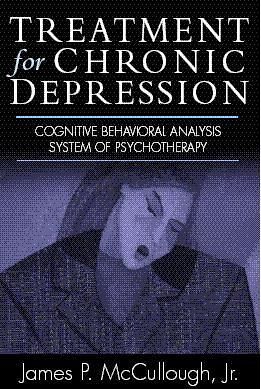
Treatment for Chronic Depression
Cognitive Behavioral Analysis System of Psychotherapy (Cbasp)
Versandkostenfrei!
Versandfertig in über 4 Wochen
67,99 €
inkl. MwSt.
Weitere Ausgaben:

PAYBACK Punkte
34 °P sammeln!
In a 12-site national study, a combination of CBASP and pharmacotherapy produced a response rate of 85% and demonstrated for the first time the superiority of combination treatment for chronic depression to either psychotherapy or pharmacotherapy alone. This book describes CBASP, a researched-based psychotherapeutic approach designed to motivate chronically depressed patients to change and help them to develop needed problem-solving and relationship skills.












